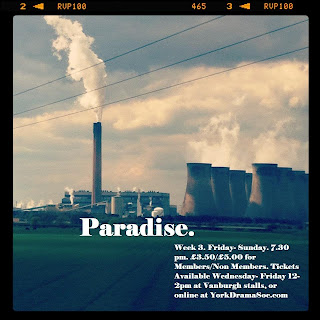With opening acts, it is often
hard to grab the audience’s attention, especially as they haven’t paid to see a
support. It generally requires a thicker skin than for most other comedy shows.
This support act was Matt Rudge, a young comedian from the West Country. One of
his main strengths was interacting with the audience, which showed his brash
yet charming confidence and warmed him to most of the audience. He was a storytelling
comedian who liked to play along with the audience in each joke and, for the
most part, this worked very well. Occasionally, however, his stories would
become a little bit too long and the punch line not funny enough to sustain the
amount of time dedicated to it. Nevertheless, the last thing I took away from
this was one of his last jokes, which was a one liner and didn’t sink that well
with the audience – His response to this was “you better get used to those as
you’ve got a full hour in front of you!” This led to one of his first rounds of
applause and set us up nicely for Stewart Francis.
Francis is a Canadian born
comedian who has established himself in both the US and UK. He is frequently on
comedy panel shows such as QI, Mock the Week and 8 Out of 10 Cats and has
written for famous American shows like ‘Tonight With Jay Leno.’ This year at
the Edinburgh Fringe Festival he was awarded the best joke award for his one
liner “You know who gives kids a bad name? Posh and Becks.” He is one of the
most successful one liner comedians in the World. My first worry when coming to
see him was if his material would remain fresh throughout the hour-long
runtime. One line comedy is very hard to maintain for 60 minutes and audiences
can easily get tired of the same routine. This was not the case with Stuart
Francis as he came out firing with some great surrealist stories.
His first few jokes settled the
audience in for a night of thinking, and of course, huge amounts of laughter.
He started to use a variety of props, voice-overs and great story arcs to give
his act a sense of vitality. I was not subject to the same style for more than
five minutes, with his satirical impression of observational comedy to his
mocking time wasting tactic of playing ping-pong offstage. The two jokes that
really stood out for me came at points during the night where his one liners
were starting to get fewer and fewer laughs. “I’m not a plagiarist! – His words
not mine!” After about two seconds of silence, the theatre erupted with
laughter, which was a usual occurrence with the challenging wordplay which
Stuart Francis uses. The next was rather more inappropriate yet got the
audience laughing as well as groaning. “My uncle ejaculated on me the other day!
I’m glad I got that off my chest!” His jokes are simple but his deadpan
delivery gives them the edge they need to make you roar with laughter.
Overall I thought the whole
experience was well worth the money (even though I didn’t pay for my ticket)
and I would definitely go and see him again. Highly recommendable - 5 Stars!!
You can listen to Tom's review this Sunday on Yorworld by visiting the URY website.




























